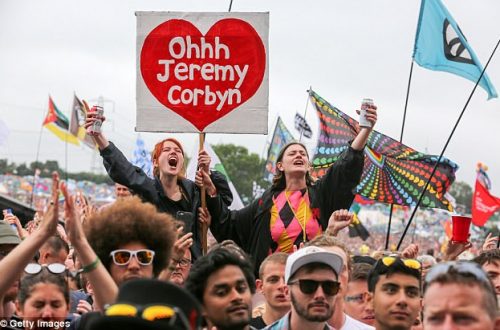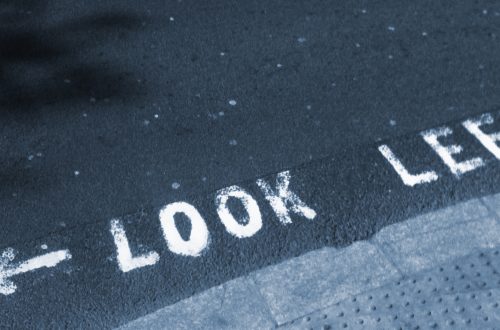Raed Salah is a convicted Hamas funder and racist who was mistakenly admitted to the United Kingdom in June and who refuses to leave. Having failed in his legal challenge, he is now appealing the Immigration Tribunal’s judgement.
One of the strangest parts of the case has been the approach that Salah and his lawyers have taken to one of the nastiest aspects of his conduct. As recorded in the Israel criminal indictment, this is what Salah said in East Jerusalem in 2007:
“We have never allowed ourselves, and listen well, we have never allowed ourselves to knead the bread for the breaking of the fast during the blessed month of Ramadan with the blood the children. And if someone wants a wider explanation, you should ask what used to happen to some of the children of Europe, whose blood would be mixed in the dough of the holy bread. God Almighty, is this religion? Is this what God wants? God will confront you for what you are doing.”
Very clearly, Raed Salah was presenting the blood libel — i.e. the medieval conspiracy theory that Jews bake bread with the blood of Gentile children — as true.
Surprising, however, a rather prominent Anglo-Israeli historian gave evidence suggesting that Raed Salah was not, in fact, promulgating a racist canard at all. Here’s the summary Ilan Pappe’s evidence:
The reference to the holy bread was a metaphor used to convey an example of those who had falsely used religion to justify their crimes. It refers to the actions of Israelis who use religion to subject the Palestinians to oppression. The Appellant drew a parallel with the crimes of the Spanish Inquisition. The Appellant’s evidence is supported by that of Professor Ilan Pappe who although describing the Appellant’s address as at times incoherent and emotive, said the Appellant did not invoke the blood libel in this or any other speech, and made a clear distinction between Jews as a race and the actions of Israeli officials. The words used by the Appellant on this occasion did not amount to blood libel because he did not refer to Jewish bread; the message of the address was not anti-Semitic or even anti-Zionist, but directed to the violation of Muslim rights in Jerusalem.
That’s a rather kind summary of the absurd position advanced by Raed Salah. It is put more explicitly by Asa Winstanley, a Salah groupie, as follows:
But Salah’s legal team argued that he was actually referring to the Spanish Inquisition.
When Sheldon accused Salah of invoking the classically anti-Semitic blood libel, Salah countered: “this interpretation is out of bounds, and has no origin in fact.” He then went into some detail, saying that his purpose had been to liken the Israeli occupation forces to the inquisitions in Europe that used to shed the blood of children, and which used religion to perpetuate injustice.
David Hearst, a Raed Salah supporter and Guardian journalist explained the argument as follows:
In the blood libel accusation, the word Jewish was interjected, when the original referred to the murder of Christian and Muslim children during the Spanish inquisition
Why did a professional historian, Ilan Pappe, endorse such obvious rubbish?
The answer is provided by Marc Goldberg in the Jewish Chronicle:
[T]his week, academic Professor Ilan Pappé, who gave evidence on Sheikh Salah’s behalf, said that he had not based his evidence on the English text of one of Sheikh Salah’s speeches that was before the Immigration Tribunal and quoted from in the Tribunal’s subsequent ruling.
Professor Pappé claims he has never seen this English text and that he based his evidence on an entirely different Arabic text.
…
Professor Pappé now says that when he made his comments to the court he was talking about a different text to the one quoted by the court.
In an email exchange with the JC, the historian, who heads the European Centre for Palestine Studies at Exeter University, said: “I was given an Arabic text that specifically talked about the use of the blood of Muslim children at the time of the Inquisition – as an example to the uses and abuses of religion.”
Professor Pappé was unable to shed any light on how or why there seem to be two different texts but said that had he been convinced that the English text was an authentic quotation from Sheikh Salah’s speech in 2007 he would not have provided the expert view that he did.
He summed up his views by saying: “Had I been convinced that the text is the old blood libel against Jews, I would have said so, and not lent my support.”
That’s quite remarkable, isn’t it?
How did Ilan Pappe come to give evidence, not on the full English translation of Raed Salah’s speech, which was before the court: but on what appears to have been a materially different Arabic text, which apparently explicitly made claims about the blood of Muslim children and the Spanish Inquisition?
More to the point, if there was an Arabic text which recorded Raed Salah’s claim that the Spanish Inquisition used to bake the blood of Muslim children into Christian sacramental wafers – not a claim I’ve ever heard before – then:
- Why wasn’t this Arabic text put before the Tribunal?
- Why wasn’t Ilan Pappe provided with the English translation, on which the Tribunal’s judgement was based?
I can understand why Raed Salah and his team might want to explain away what appears to be a pretty clear reference to an ancient and well known racist incitement against Jews. After all, that was why he was banned from the United Kingdom. But something seems very wrong, here.
In its eagerness to find an expert who would bolster Salah’s unlikely argument that he was referring to the Spanish Inquisition, did Salah’s lawyers provide an Arabic text to their “expert witness” which was not the same as the one before the court, and which was itself not presented to the court?
I would like to know the answer.


